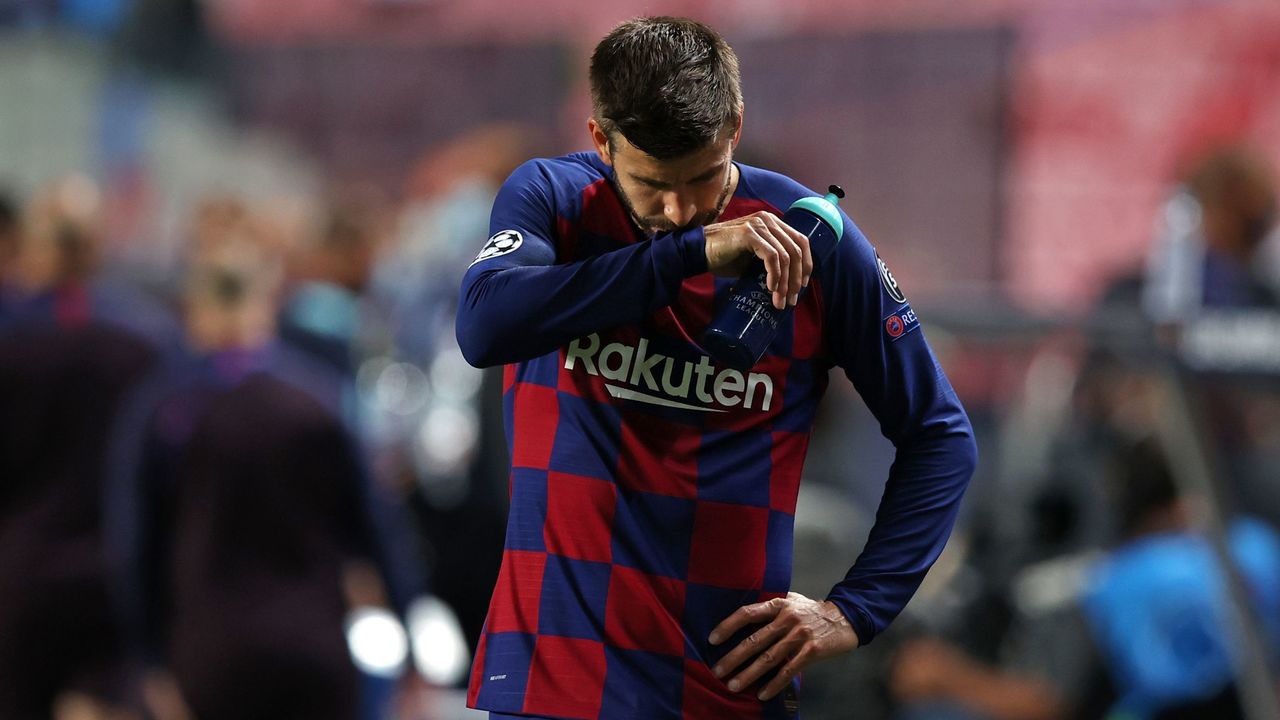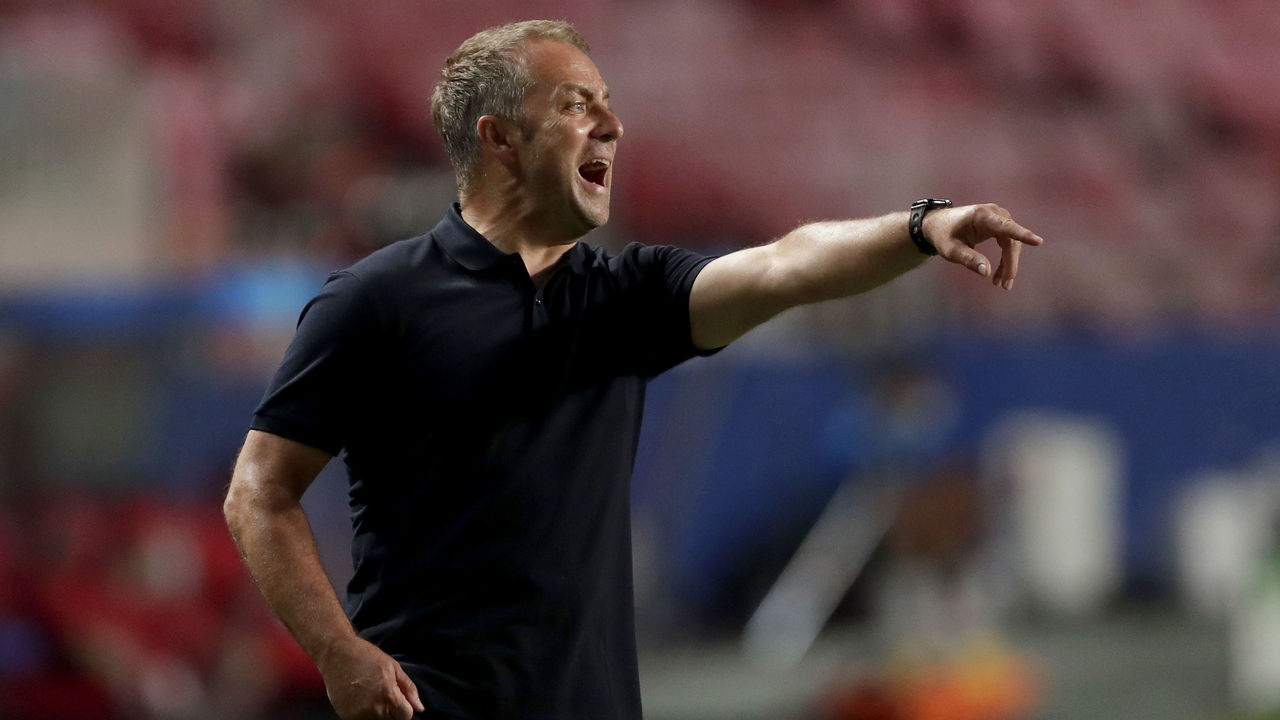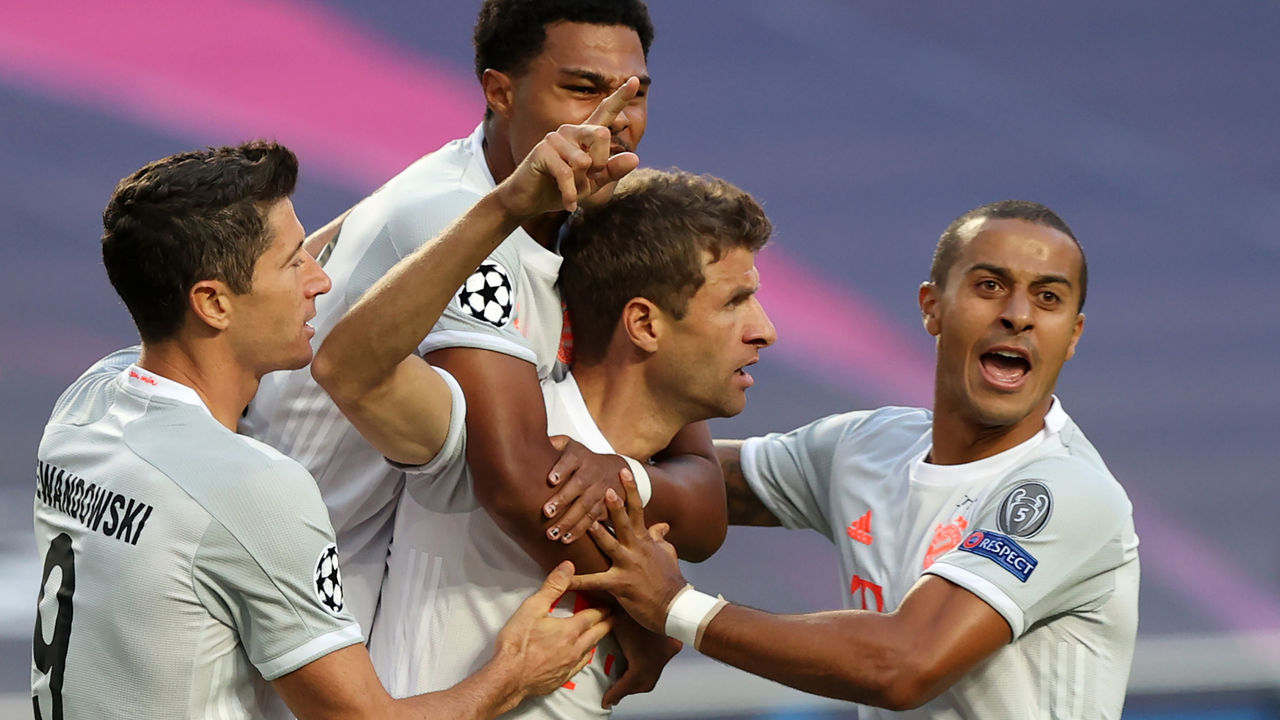How Bayern Munich humiliated Lionel Messi and Barcelona
Bayern Munich laid a 7-0 beating on Barcelona once before. But that was an aggregate score over two legs. Friday's 8-2 win was a 90-minute demolition of one of Europe's famed clubs.
Though the Bundesliga champions came into the match as favorites, few could've predicted the havoc they'd wreak. Bayern cut through Barcelona with devastating ease. By the half-hour mark, they had already scored four goals and missed chances to build on an already unassailable lead.
By the end of the night, Bayern had recorded one of their biggest victories and Barcelona had slumped to their worst loss since 1946. Here's how the German side made history:
Barcelona exposed by high press

Barcelona barely had a second on the ball before Serge Gnabry or Thomas Muller or any one of Bayern's energetic core spooked them into a turnover. It happened over and over again, until the score was finally out of reach. Muller and Leon Goretzka teamed up to dispossess Barcelona's Frenkie de Jong ahead of the first goal, and Gnabry bared down on Barcelona's Nelson Semedo to create the third. Even Robert Lewandowski did some dirty work, robbing Semedo on the goal line seconds before Bayern scored their fourth. The Germans surged forward, knowing the team they were facing - a majority of aging 30-somethings - posed little threat on the counter.
Bayern flat-out insulted Barcelona with their high line. Though they had marginal success with balls over the top, Barcelona were ill-equipped to play a game of back-and-forth football. Their attempts to play out from the back were futile, and without a Plan B, they were unable to change course. Marc-Andre ter Stegen, Barcelona's usually composed goalkeeper, was flustered by the sheer amount of pressure he was under. He continued to play passes on the ground, but none of his teammates were in positions to receive the ball cleanly. Bayern's hunting pack was there to intercept every time.
Quique Setien looked absolutely hopeless on the bench. He was brought in to restore Barcelona's soul, to bring back the football that brought fans to their feet, but none of his ideas worked. For a club that's so obsessed with playing the right way, there's an alarming lack of purpose to the entire operation. Bayern exposed Barcelona as the mess they are: an aimless super club with a once-in-a-lifetime player surrounded by mediocrity.
Flick's changes pay off

It was the perfect game plan, executed to devastating effect.
But for it to happen, it required a revolution. Hansi Flick found a group of unhappy players when he replaced Niko Kovac in November. They told him they wanted to play more attacking football. They didn't want to play as conservatively as they had under Kovac. Flick listened, ordering a higher intensity in training and matches.
"You can see the changes. It's not difficult to analyse," Muller told The Athletic's Raphael Honigstein in February. "We've changed the way we play 'against' the ball. We attempt to disrupt the opponents' game in their own half, no-holds-barred. It works quite well."
In many ways, Pep Guardiola's time at Bayern corrupted the players there. They weren't used to retreating and reacting. They were used to spending large parts of each match in the final third.
Flick was happy to restore that sense of control, and results followed, with Bayern scoring 113 goals and winning 91% of their games since Kovac was fired. Remember, this club looked to be at the end of its own era. Bayern fell as low as seventh in the Bundesliga standings, and now they're two games away from winning a sixth Champions League title.
Muller back to his scrappy best

It's fitting that one of Flick's pet projects came through on the biggest night of his managerial career. Muller led Friday's goal parade with a brace in the first half and caused the usual chaos in and around the penalty area. But his place in the starting lineup was far from secure at the beginning of this long, winding season.
Kovac didn't rate Muller. He made just two starts in October and seemed destined to leave the only team he's ever known. That all changed when Flick was appointed. Where Kovac saw a liability, Flick saw an opportunity.
Muller is too much of a shapeshifter to have a set position or play on the back foot. So instead of shackling the 30-year-old, Flick freed him, realizing the World Cup winner is at his best when he invades space between the lines. Flick identified these strengths and allowed Muller to lead the press.
Yes, Muller's movement is unpredictable, and yes, his finishing is unorthodox, but his intelligence and spatial awareness are second to none. He knows when to trigger the press, when to join the attack, and when to lay the ball off to his teammates. He's football's everyman, and after being cast to the side, Muller's certainly back to his best.
HEADLINES
- 2026 World Cup tracker: Who's qualified, how many spots are left?
- Latest transfer news and rumors: Barcelona target Diaz not for sale
- Ronaldo leads Portugal past Germany, into Nations League final
- Wirtz slams report about asking for No. 10 shirt in Liverpool transfer talks
- Flekken joins Leverkusen from Brentford for reported €10M